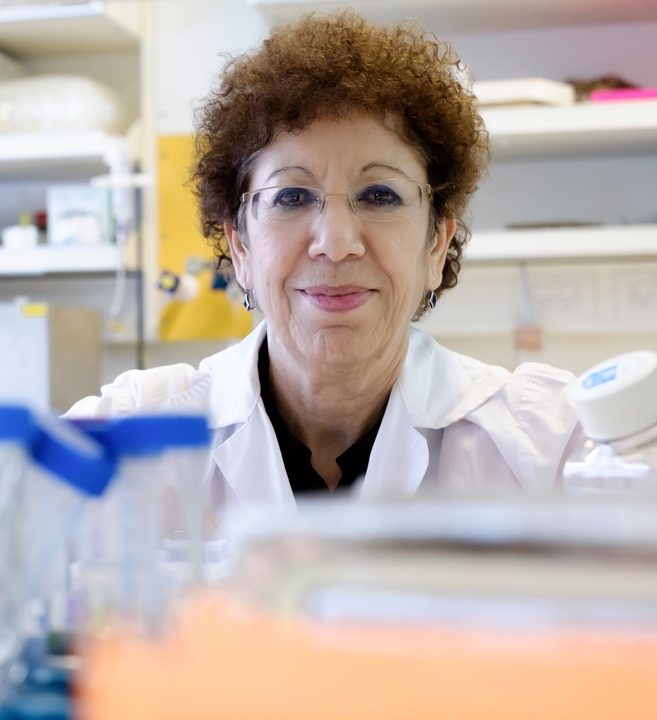
New Therapy Converts Cancer Cells Into Normal Ones
New Therapy Converts Cancer Cells Into Normal Ones
May 16, 2018
Medical Research, Natural Sciences
Forward – Cancer cells, by definition, are abnormal cells that spread by dividing relentlessly and wreaking havoc on your vital organs and tissues. But, what if you could tell those same troublesome cells to stop misbehaving? BGU researchers have found a way to do just that.

Prof. Varda Shoshan-Barmatz
Prof. Varda Shoshan-Barmatz, former director of the National Institute for Biotechnology in the Negev, and part of BGU’s Department of Life Sciences, and her team have developed a molecule that prevents cancer cells from growing and turns them into normal, non-cancerous cells.
This unique approach is based on siRNA (small interfering ribonucleic acid), a molecule that turns off VDAC1, a protein that helps get energy to malignant cells. By targeting VDAC1, Prof. Shoshan-Barmatz and her team have essentially figured out how to make cancer cells start acting like regular ones.
So far, in vitro and mice models have suggested that this treatment might be effective for lung cancer, triple negative breast cancer and glioblastoma (the type of brain tumor that John McCain is currently battling). But the applications might be even broader, and similar treatments might be used, one day, to combat an even wider variety of cancers.
“Although this is in the early stages, we are excited with results that demonstrate this novel molecule’s potential for cancer treatment,” says Prof. Shoshan-Barmatz.
“Using the siRNA treatment on several types of cancer in mouse models reprogrammed cancer cell metabolism, reduced tumor growth and angiogenesis, reduced tumor invasiveness, and induced cancer stem cell disappearance and cell differentiation.”
The siRNA treatment did not impact non-cancerous cells, which indicates that it has the potential to be a well-controlled, safe approach.
This particular cancer-fighting strategy is just one of many that Prof. Shoshan-Barmatz is currently exploring in her lab. She’s also focusing on the VDAC1 protein as a means to induce death in cancer cells.



